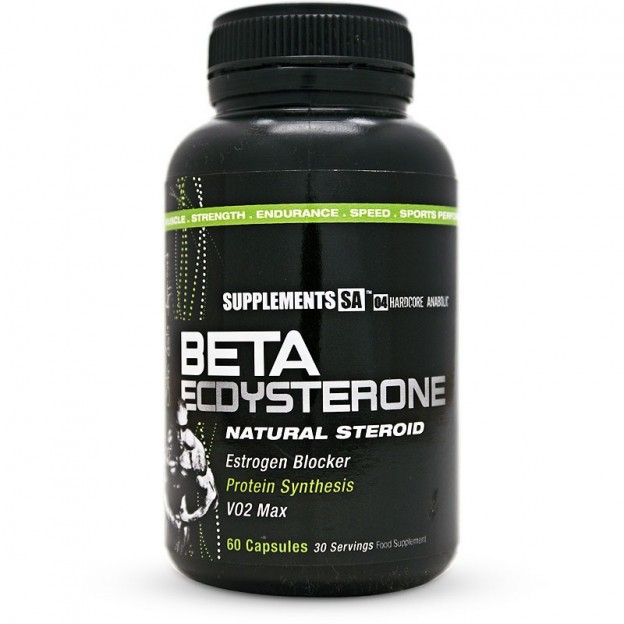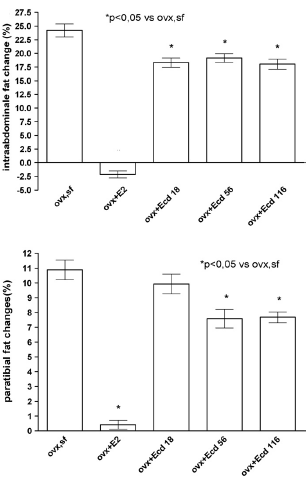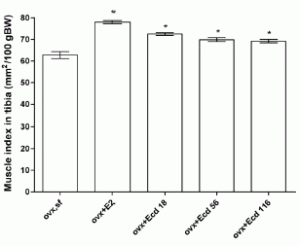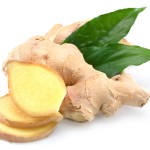By Admin – Steroidal.com
Insect ecdysteroids have been used in bodybuilding supplements for decades, whilst some recent supplement companies have decided to add these compounds to their products in the hope attracting new customers, but the truth is – there is very little stating ecdysteroids enhance performance in humans.
The most common ecdysteroid is ecdysterone, or 20-Hydroxyecdysone and that’s what we’re going to be looking at today.
In 2010, Endocrinologists at the University of Goettingen, Germany, and soon to be published in the Journal of Steroid Biochemistry and Molecular Biology, looked at varied dosages of ecdysterone given to female rats with their ovaries removed, so will have lower sex hormones.
The German researchers gave rats either 18mg, 56mg or 116mg ecdysterone orally every day. Control groups were given ordinary feed [ovx,sf] or feed containing a small amount of synthetic estradiol [ovx+E2], for 3 months.
The figure below shows that the control group rats gained fat, but the rats given ecdysterone gained less fat.
A marker for subcutaneous fat is the fat below the skin found just above the shinbone, or paratibial fat. Visceral fat, which surrounds the internal organs in abdomen, is an important marker for cholesterol levels and heart disease. The study found that the higher the dose of ecydesterone, the more inhibited both paratobial and visceral fat were, so fat gain was blunted.
More importantly, ecdysterone ingestion led to more muscle mass across the groups, showing an anabolic effect, as shown below.
Unfortunately, these are rodents and not humans; whilst there is extremely limited data supporting the fact ecdysterone is anabolic in humans.
In fact, we found another study done in 2006, looking at the effects of ecdysteroids – methoxyisoflavone [M], ecdysterone [E] and sulfo-polysaccharide [CSP3] supplementation on training adaptations in resistance-trained males [2].
The study looked for improvement in actual exercises performed and tested for improvements/increases in chemical indicators such as body composition and free/available testosterone. The study concluded that supplementation with up to 200 mg per day had no effect.
“Results indicate that M, E, and CSP3 supplementation do not affect body composition or training adaptations nor do they influence the anabolic/catabolic hormone status or general markers of catabolism in resistance-trained males.”
Dietary supplements sold in stores or online, usually suggest larger doses than 200mg per day, but the findings in the above study aren’t promising. Dosages of grams per day are not unheard of and may enhance performance or boost protein syntheses marginally, so don’t believe the hype.
We’d suggest experimenting and consume your ecdysterone product with a meal containing fat and protein.
References:
[1]. J Steroid Biochem Mol Biol. 2010 Jan 25.
[2]. J Int Soc Sports Nutr. 2006; 3(2): 19–27.









